How To Interview Someone for a Podcast: 12 Essential Tips You Need To Know
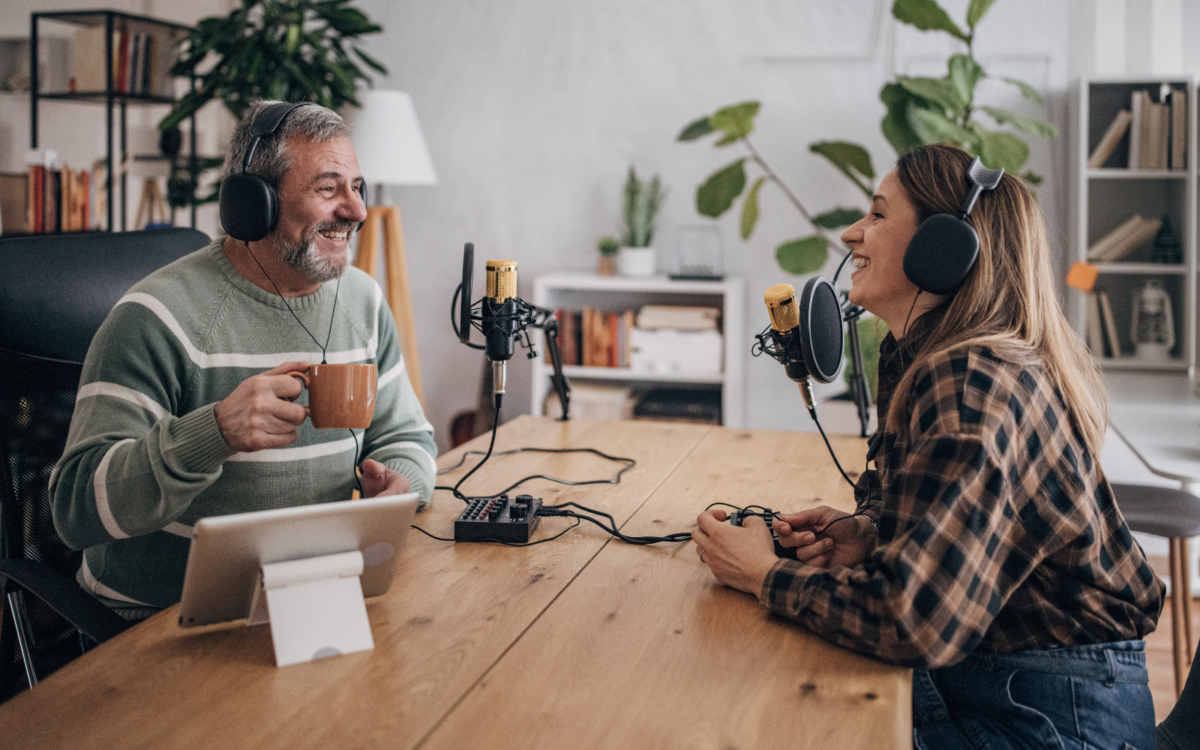
When you buy something through one of the links on our site, we may earn an affiliate commission.
Do you really want to learn how to interview someone for a podcast?
Starting your own podcast can sound easy.
After all, you’re just recording a conversation between a bunch of people, right?
Wrong.
Interviewing someone is a complicated process that requires lots of preparation, a proper setup, and strong conversational skills. But if done correctly, it has the potential to become a solid business that can even replace your full-time job.
That’s why we’ve made a list of 12 best tips on how to interview someone for a podcast so you can turn your passion into a professional podcast show.
Let’s begin.
Contents
- 1. Select an Interesting Guest
- 2. Learn About Your Guest’s Background
- 3. Do Your Homework on the Topic
- 4. Prepare Some Exciting Questions
- 5. Do a Warm-Up with Your Guests
- 6. Eliminate any Distractions and Noises
- 7. Use Proper Equipment and Setup
- 8. Listen More and Interrupt Less
- 9. Forge a Connection Between Your Audience and Guest
- 10. Avoid Getting Stuck on a Single Topic
- 11. Be Open and Confident
- 12. Don’t be Afraid to Argue
- Conclusion
1. Select an Interesting Guest
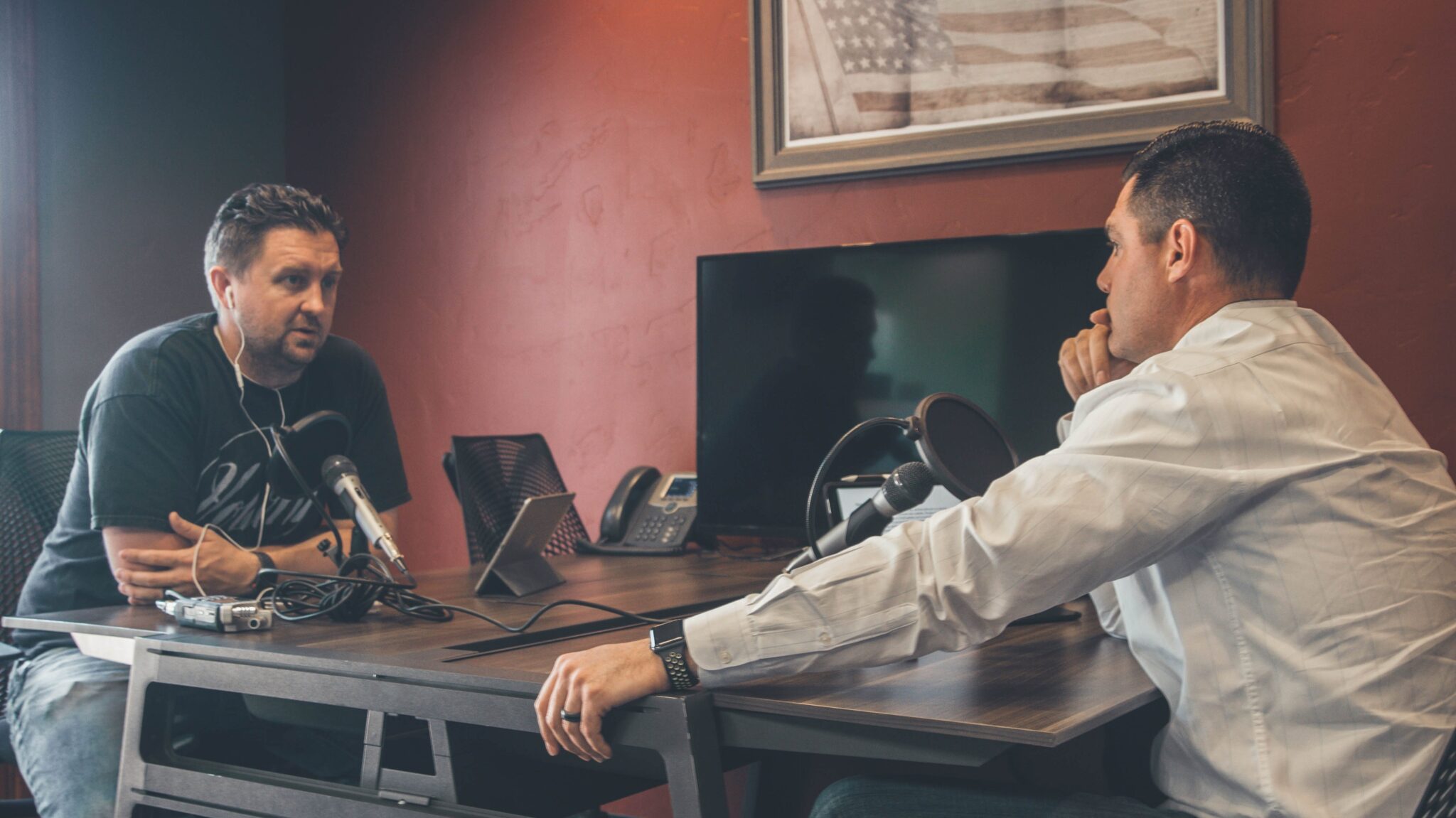
Finding an interesting guest is almost half of the game in podcasting.
After all, most of your viewers will decide whether to watch or skip your podcast just by seeing the name of your guest.
Considering the importance of this decision, there are several factors you need to consider while choosing a guest for your podcast: charisma, style of conversation, and similar mindset, to name a few.
Popularity is a key metric, too. But without compatibility with the host and theme of the podcast, even Elon Musk won’t be able to woo your viewers into listening to the entire interview.
Here are a few tips that can help you find an interesting guest:
- Observe Podcasts Similar to Yours: Listening to other podcasts in your genre is a great way to find potential guests for your show. Analyze their character, flexibility, and style of conversation to decide whether they’ll be appropriate for an interview on your podcast or not.
- Go Online: Following trends on Twitter and other social media platforms can help you shortlist hundreds of new and existing individuals who could become excellent guests on your show.
- Do Your Research: Before sending invites and emails to every popular name you come across, it’s essential to conduct some background research on your podcast guests. Not every individual will suit your show’s theme or target audience. For example, if your podcast is about health and fitness, you’d get much better results by interviewing fitness trainers instead of aviation experts.
2. Learn About Your Guest’s Background

Before you bring any guest in front of the camera, it’s crucial to do a proper background check on their profile.
This will help you build a more natural connection with your guest during the conversation, adopt a unique interview approach, and stand out amongst hundreds of other podcasters.
It’s also equally important not to stalk your guests too much before an interview. This can eliminate the element of curiosity for the host and make the interview come off as scripted.
Here are some ways you can learn about your guest’s background:
Look up Your Guest on Social Media
Social media can reveal a lot about a person and their ideologies. Use platforms like Facebook, Instagram, Twitter, YouTube, and LinkedIn to learn about your guest’s background and history.
Their recent posts can give you tons of valuable insight into their recent activities and current interests while allowing you to interact with them and build a long-term relationship.
Read About Their Recent Work
Books, articles, personal blogs, and past interviews are all gold mines for a podcast host. You can get loads of crucial details about your guest’s achievements and interests by researching their recent work.
Look for information that is strictly relevant to your show and can help you create better podcast interview questions. Don’t try to figure out who their high school teacher was or what they were like as a child. Your guest will reveal all of it later during the interview if they deem it necessary.
Listen to Any Previous Podcasts
Watching any previous interviews your guests have appeared in can help you stand out amongst other podcast shows.
Pay attention to the questions they answered thoughtfully, figure out if they’re talkative or reserved, and avoid topics they were reluctant to discuss (unless you have a better approach in mind).
3. Do Your Homework on the Topic

Having in-depth knowledge of your topic is just as important as knowing your guest.
To do this, you need to identify topics that interest your guest while making sure they align with your podcast’s theme. Once you’ve narrowed them down, thoroughly research the subject to find new and creative angles towards them.
Study the latest trends on news websites and social media regarding your main topic and find out how newer generations are looking at things.
Learn their angles, have healthy debates, and give out new information on that topic during your podcast interviews to keep listeners hooked.
4. Prepare Some Exciting Questions

Questions are at the core of a great podcast interview.
Having a list of questions written on paper before recording can help you create a direction for your interview and make the whole podcast episode more intriguing.
But like any other tactic, it’s essential not to go overboard and plan every detail to prevent your interview from sounding scripted.
Here are a few pointers to keep in mind when preparing podcast interview questions:
- Ask open-ended questions that allow your guest to elaborate on the topic.
- Don’t ask leading questions or questions that can be answered with a yes or no.
- Be flexible and ask follow-up questions based on your guest’s answers.
- Focus on asking questions with ‘How’ and ‘Why’ to get more insight from your guest’s responses.
- Ask for their advice for the general audience in relevance to your podcast interview topic.
- Use the research on your guest’s background to dig deeper into the conversation.
- Don’t ask complicated or multiple questions at once.
Creating engaging and thought-provoking questions for your podcast can be a major challenge — especially if you're just starting off. That's where Jasper AI comes to the rescue.
Jasper AI is an intelligent writing assistant and a life-saver for podcast hosts. It's loaded with hundreds of templates, including one for generating Engaging Questions for your interviews. Jasper AI also helps you write killer introductions, social media captions, and even outreach emails for inviting influencers on your show!
5. Do a Warm-Up with Your Guests

Having a short chit-chat with your guest before hitting the record button can set you up for a great conversation ahead.
Make it a routine to spend a few minutes talking to your guest before every podcast session. Try to make them feel comfortable in their chair and have a short talk before going live.
Give them a brief overview of your show and explain what kind of listeners you have. Walk them through the show’s format and go over some questions you’ve prepared for the interview.
You can also email them all the details a few days in advance so your guests have plenty of time to prepare. This will give you enough margin to make any adjustments if the guest has any special requests regarding matters they’d like to prioritize or avoid.
6. Eliminate any Distractions and Noises
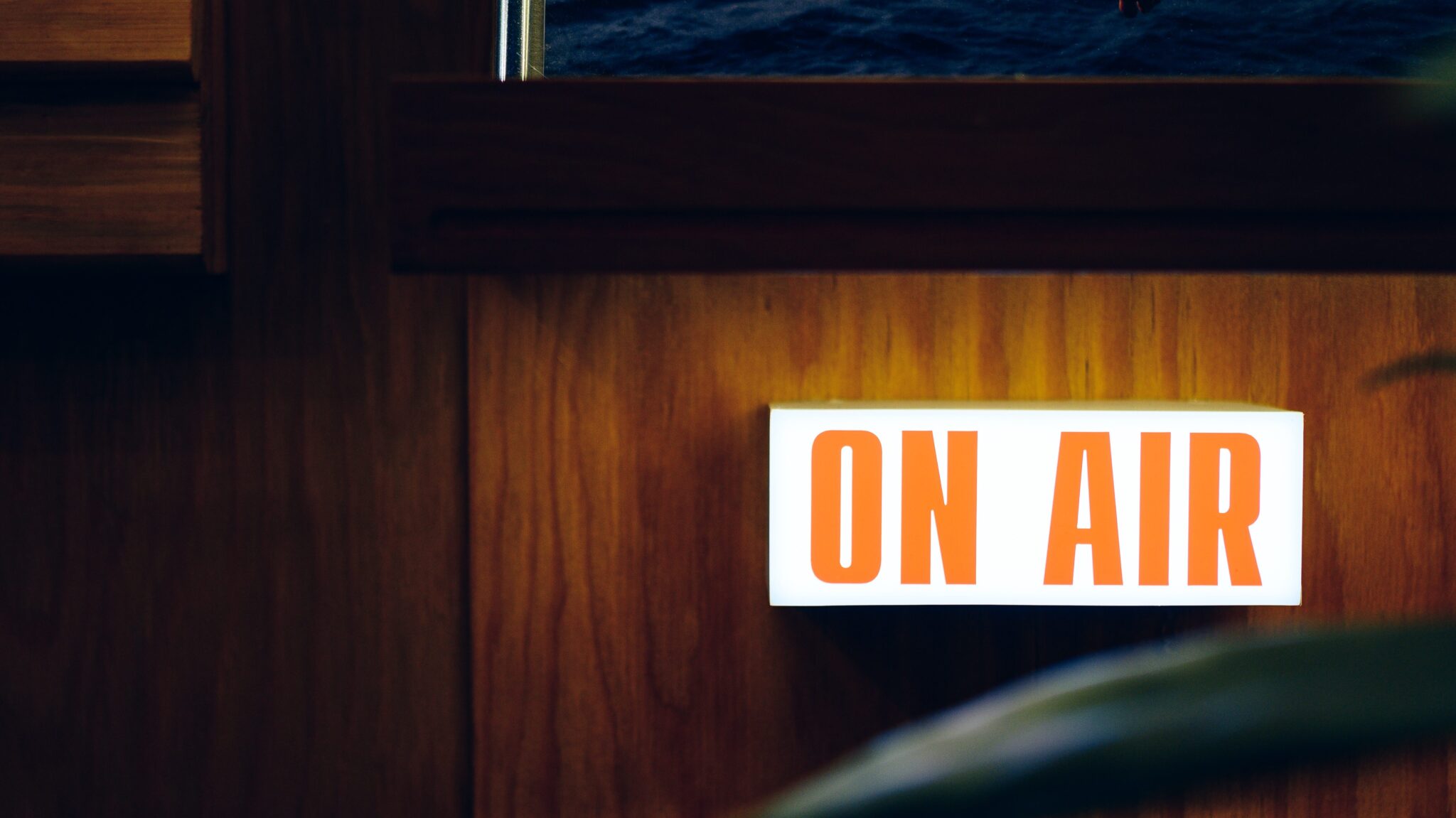
One of the most crucial factors for conducting a smooth podcast interview is eliminating any distractions and noises from the recording room.
Ringing mobile phones, loud traffic, and barking pets can distract your guest from the conversation and break the flow of your entire interview. Even worse, these sounds can creep up in your audio recordings and become extremely difficult to remove post-production.
Here are some tips you can implement to ensure a foolproof recording session:
- Select a location that is secluded from your house/studio.
- Make sure there are no pets inside or near the room.
- Ask everyone in the studio to keep their mobile phones on vibrate or silent.
- Inform your co-workers/family members about the interview in advance.
If you want to take things a step further, install some acoustic panels in your recording studio to make the room fully soundproof. Acoustic panels will also prevent your voice from echoing and significantly improve the sound quality of your final cut.
7. Use Proper Equipment and Setup
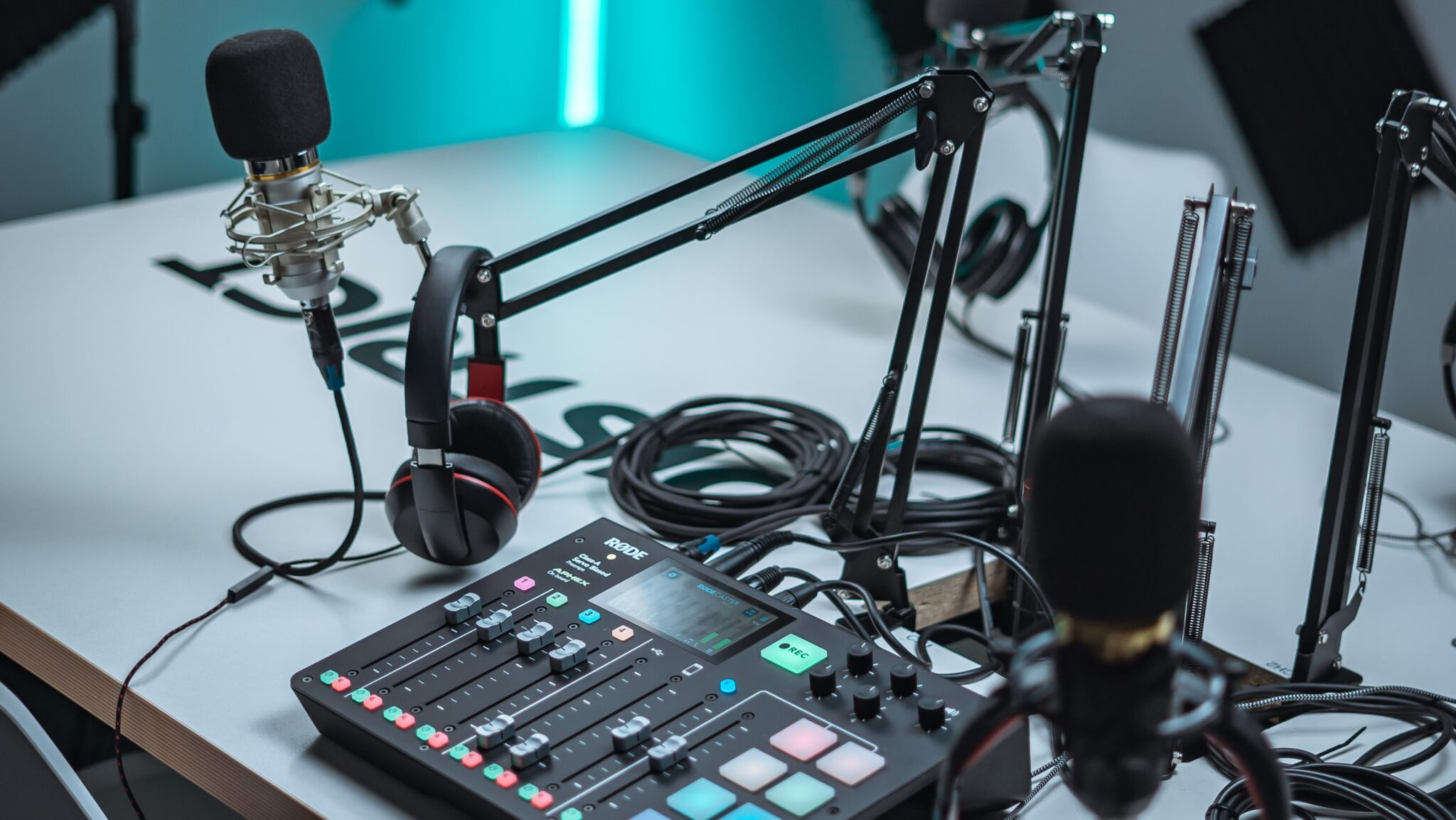
Having proper equipment and gear can be a game-changer for your podcast. When a listener tunes into your interviews, they’re looking for a conversation that’s not only entertaining, but also clear and audible.
When it comes to podcast gear, there are three types of equipment that you should consider for conducting a great interview:
- Microphones
- Cameras
- Lighting
Even though we can write an entire article on just selecting the right podcast gear, the important thing is to create a budget and spend wisely on each of the three equipment mentioned above.
Microphones
Dynamic microphones are probably the best at recording high-quality vocals in podcasts. You can also get a budget USB mic and attach a pop filter to greatly enhance the quality of your audio recordings.
Place the microphone around 6-8 inches away from your mouth and adjust the sensitivity accordingly for the best results.
Cameras
For most podcasters, the latest-model iPhone or Android will do just fine. If you have some budget to spend, get a decent point-and-shoot or DSLR to get even better video quality.
Set up your main camera where both the guest(s) and host(s) are visible. You can also set up multiple cameras/smartphones to enhance the visual experience for your viewers.
Lighting
Lighting is probably the most underrated aspect of shooting an attractive, visually appealing interview. Purchase a ring light or a basic lighting kit from Amazon and place it at a 45-degree angle toward your guest.
Make sure to adjust the position of your lights so there's no glare or reflections in the camera.
Once you've nailed your audio and video setup, we recommend purchasing/upgrading the following equipment to enhance your podcast quality even further:
- A fast PC or laptop
- Headphones for live playback
- Mic stands and shock bumps
- Audio interface and mixers
Selecting the right video-editing software can also drastically enhance your podcasts and save you tons of time. If you're looking for one, check out our list of 7 Best Podcasting Softwares & Tools.
8. Listen More and Interrupt Less
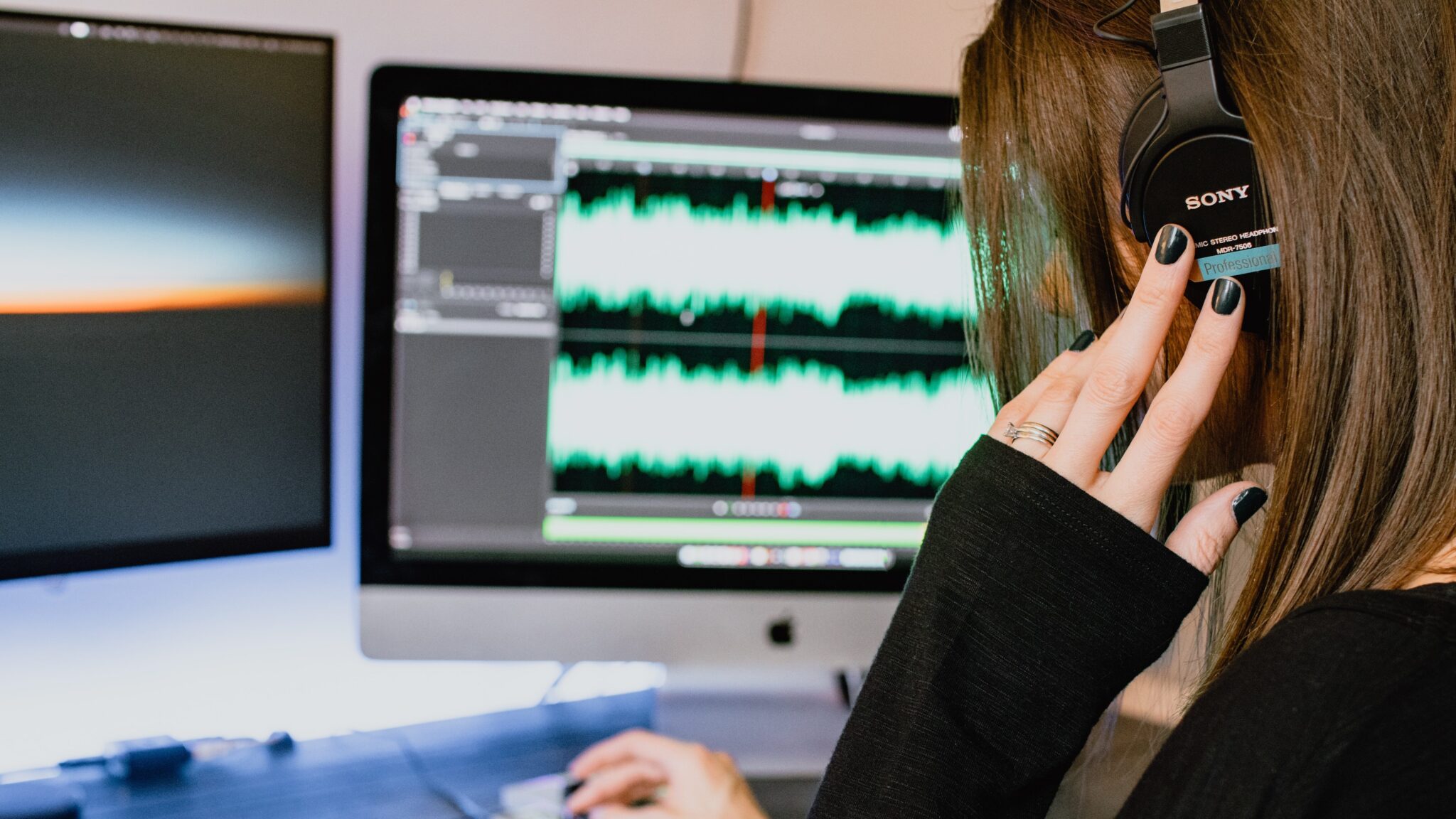
Once you’ve built a great podcast setup, it’s time to focus on the interview.
And a golden rule for podcast hosts is to Listen more and interrupt less during a recording.
When your audience is listening to your podcast, they’re probably more interested in your guest’s story than your own opinion on the subject.
If you keep disrupting them during every single sentence, your guest will lose their train of thought and might even become frustrated. Try to nail your timing before you interrupt and introduce your thoughts. If a great point comes across your mind, simply say, “I’m sorry for cutting you off, but...” to avoid seeming rude while maintaining the flow of the conversation.
You should also avoid NOT interrupting your guest at all. If you let your guests go on for 15 minutes straight without a break, your audience will become bored, and the interviewee might feel uneasy that they’re doing all the talking.
9. Forge a Connection Between Your Audience and Guest
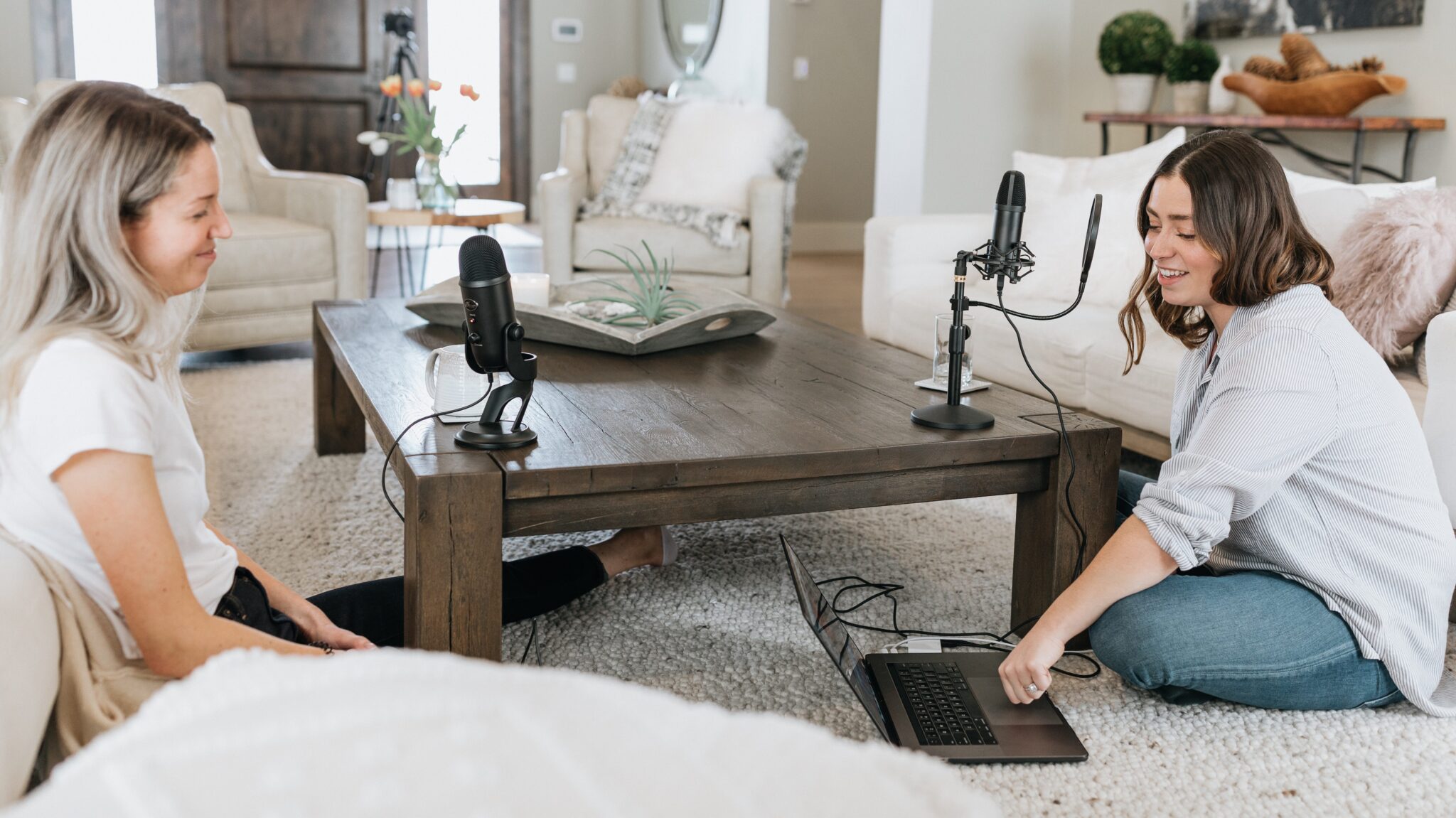
Your listeners are the ones who are going to make your podcast a success or a failure.
Therefore, your goal should be to create a solid connection between your audience and guests. Look at your conversation from your audience’s perspective and lead it in a direction that will appeal to and engage them the most.
Here are a few tips that can help you create a strong bond between your guest and audience in every single podcast:
- Hype your audience about the guest: Announcing the guest of your upcoming podcast on social media is a highly effective way of building excitement amongst your followers. You can also request your guests to share attention-grabbing teasers on their Facebook, Instagram, or Twitter accounts to target an even larger audience and set the stage for a great interview.
- Spark curiosity during the introduction: Instead of using the same introduction for every guest, try to come up with an opening that makes your viewers curious. Tease your listeners with secrets/revelations that you will later disclose in the interview to keep them hooked and engaged in your podcast.
- Encourage your guests to share anecdotes: Nothing captures the attention of a podcast audience like anecdotes. Encourage your guests to add a personal touch to their stories and give context to their experiences to make the conversation more relatable for your listeners.
If you want to expand your podcast reach through social media and automate publishing, we highly recommend using SocialPilot.
SocialPilot is a revolutionary tool for podcasters and one of the highest-rated social media management softwares on the market. Whether it's scheduling posts, getting detailed analytics, or collaborating with your guests, SocialPilot has something for every podcaster to take their viewership to the next level!
10. Avoid Getting Stuck on a Single Topic
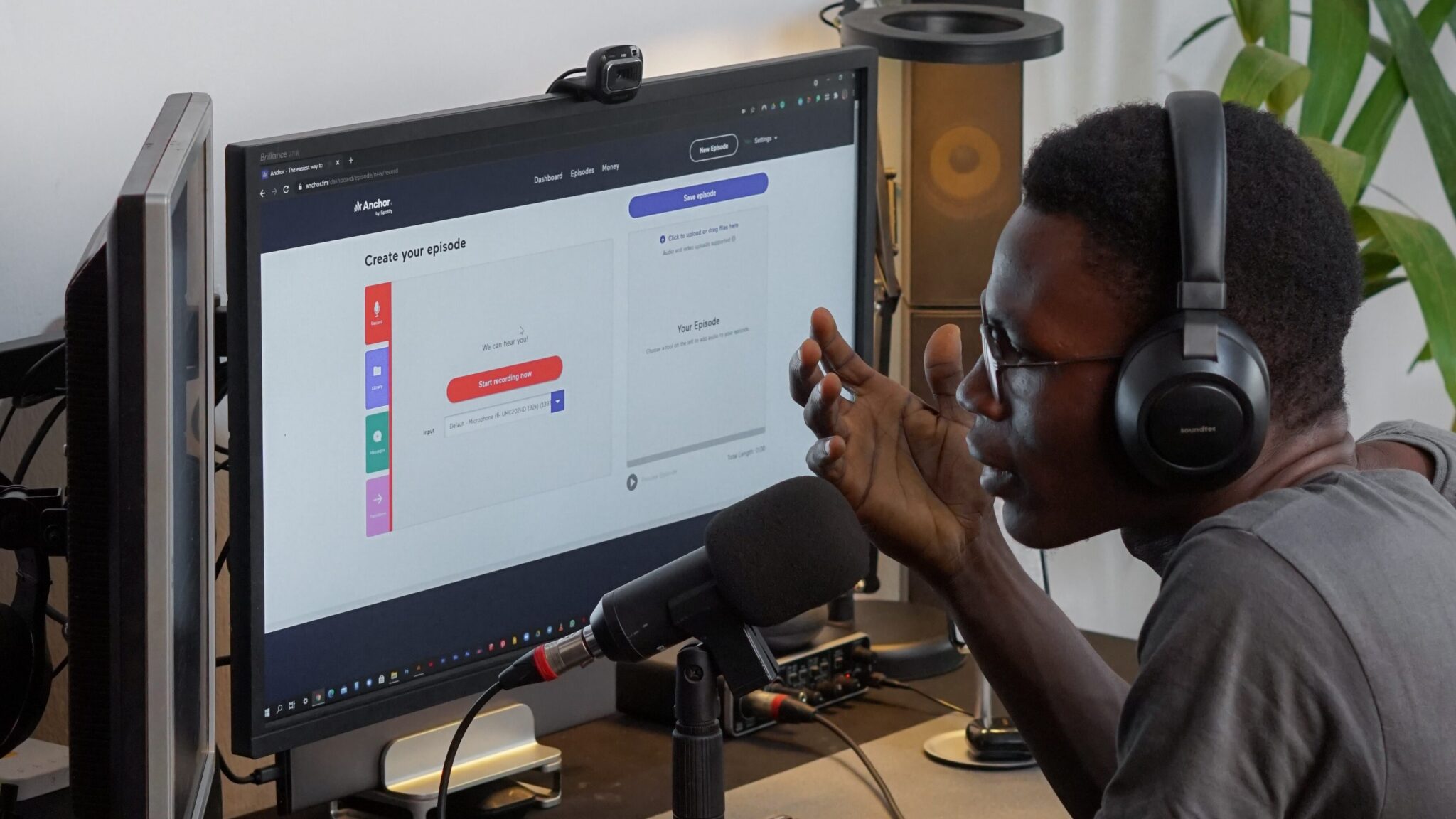
Podcasts can’t go on forever. You have a limited time duration with each recording, so it’s crucial to make the most out of every minute.
To ensure this, the best tip is to avoid getting stuck on a single question. Try to keep track of time with each question and avoid dragging on for too long. This will help you cover more topics in a session and prevent you from boring your viewers.
Since you’re the show host, it’s your job to steer the interview in the right direction. Don’t waste your time doing 20-minute-long introductions. Focus on just the relevant parts of segments that are essential to keep your listeners engaged.
However, this is not a hard and fast rule. You can let your guests go a little off-track if you feel like the conversation adds value to the show. But as soon they start to drift off, you should try to reel them back with pre-prepared podcast interview questions.
11. Be Open and Confident

Mumbling questions or avoiding confrontation can make your podcast sound weak and uninteresting.
As a podcast host, it’s your job to be confident enough to lead the interview in your direction and create an open atmosphere where your guests can speak their hearts out.
While there’s no magic formula for gaining confidence overnight, you can try certain tricks to appear more assertive on camera. Avoid overusing filler words like “umm” and “actually” by slowing your speech and focusing on clarity. Also, try to sit with an upright posture and take deep breaths if you get nervous mid-interview.
To create an open atmosphere, you need to become vulnerable yourself. Don’t be afraid to speak about your failures and personal challenges. When your guest notices that you’re opening up, they will automatically mirror your state of mind and become more comfortable in sharing extra details that your audience might find valuable.
12. Don’t be Afraid to Argue
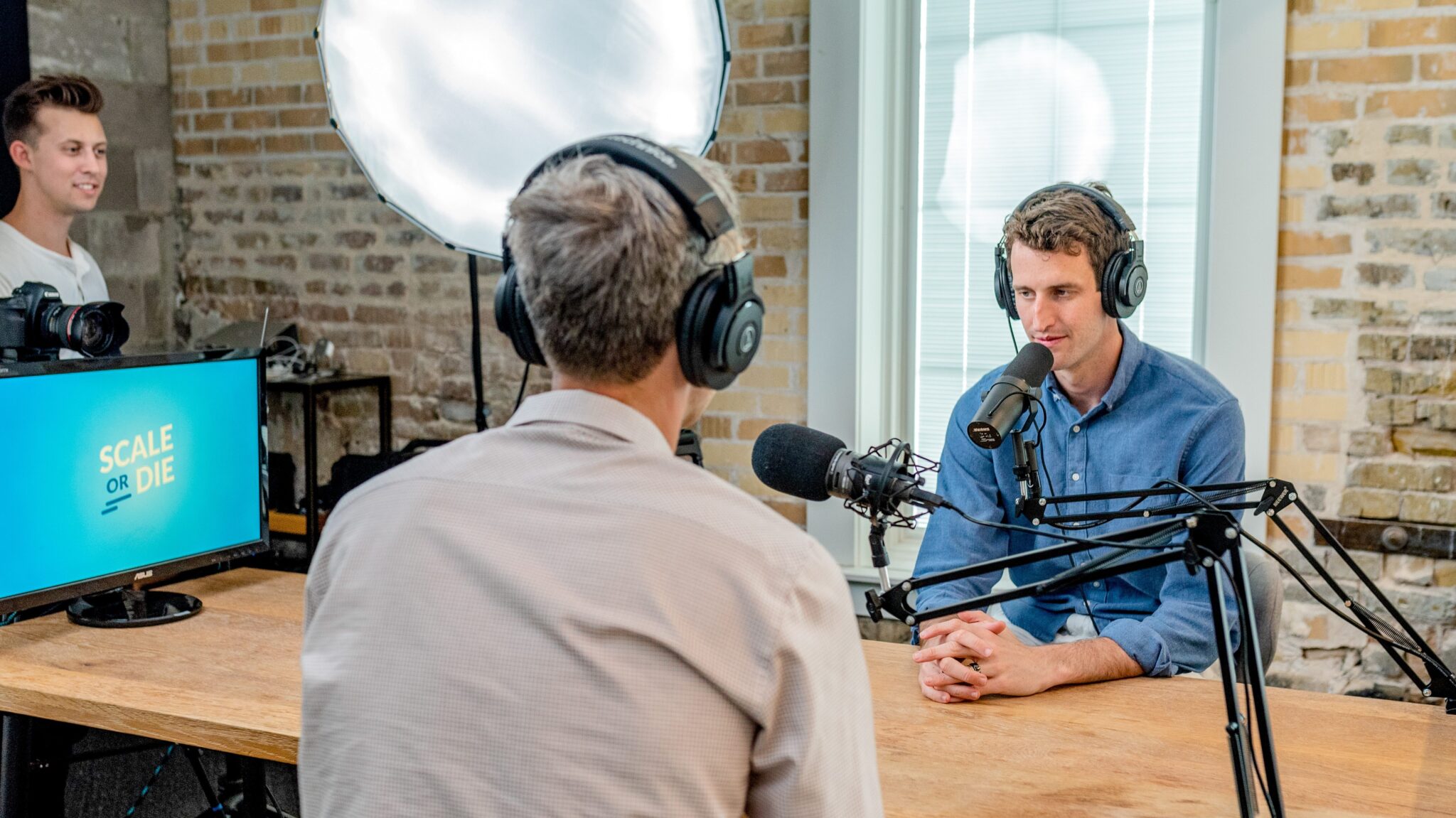
Nobody wants to watch a podcast where both parties agree on everything.
In fact, the majority of your audience is looking for a healthy debate and contrasting opinions on your topic. And that can only be achieved when you’re not afraid to argue.
One great way to build tension is to blurt out a wrong figure during your conversation intentionally. This will force your guest to correct your mistake and open the floor for a dynamic discussion. For this trick to be successful, try to use a statistic that you’re sure your guest knows the right answer to.
When you’re provoking a debate, respect your guest’s boundaries and avoid using statements that might offend them. Not every guest will be comfortable being confronted during a podcast, so choose who you want to argue with carefully.
Conclusion
Mastering the art of podcasting is a continuous learning journey that takes hundreds of episodes and retakes to perfect.
We hope these 12 tips will make the process a little easier and give you a tremendous boost toward hosting a successful podcast interview.
If you want to read a complete guide on how to start a podcast from scratch, check out our Podcasting For Business: Step-by-Step Instructions article.
Or, if you've already started a show and want to scale your podcast even further, read our list of the Top 28 Best Podcast Production Companies.
Want to learn step-by-step how I built my Niche Site Empire up to a full-time income?
Yes! I Love to Learn
Learn How I Built My Niche Site Empire to a Full-time Income
- How to Pick the Right Keywords at the START, and avoid the losers
- How to Scale and Outsource 90% of the Work, Allowing Your Empire to GROW Without You
- How to Build a Site That Gets REAL TRAFFIC FROM GOOGLE (every. single. day.)
- Subscribe to the Niche Pursuits Newsletter delivered with value 3X per week
My top recommendations


















